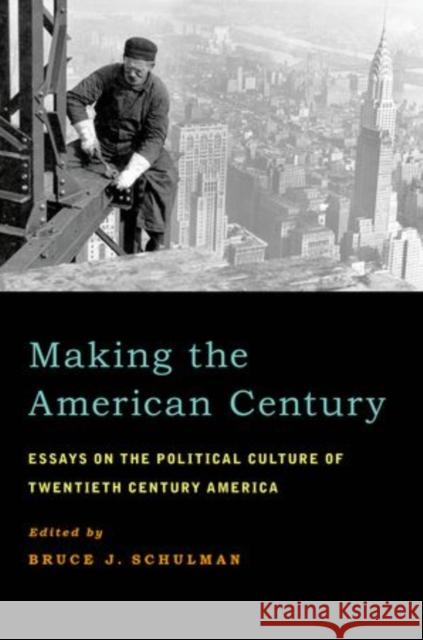Making the American Century: Essays on the Political Culture of Twentieth Century America » książka
topmenu
Making the American Century: Essays on the Political Culture of Twentieth Century America
ISBN-13: 9780199845415 / Angielski / Miękka / 2014 / 336 str.
The twentieth century has been popularly seen as "the American Century," a long period in which the United States had amassed the economic resources, the political and military strength, and the moral prestige to assume global leadership. By century's end, the trajectory of American politics, the sense of ever waxing federal power, and the nation's place in the world seemed less assured. Americans of many stripes came to contest the standard narratives of nation building and international hegemony charted by generations of historians.
In this volume, a group of distinguished U.S. historians confronts the teleological view of the inexorable transformation of the United States into a modern nation. The contributors analyze a host of ways in which local places were drawn into a wider polity and culture, while at the same time revealing how national and international structures and ideas created new kinds of local movements and local energies. Rather than seeing the century as a series of conflicts between liberalism and conservatism, they illustrate the ways in which each of these political forces shaped its efforts over the other's cumulative achievements, accommodating to shifts in government, social mores, and popular culture. They demonstrate that international connections have transformed domestic life in myriad ways and, in turn, that the American presence in the world has been shaped by its distinctive domestic political culture. Finally, they break down boundaries between the public and private sectors, showcasing the government's role in private life and how private organizations influenced national politics. Revisiting and revising many of the chestnuts of American political history, this volume challenges received wisdom about the twentieth-century American experience.










